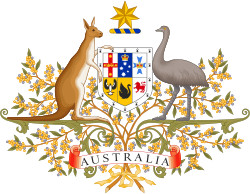Australian House of Representatives committees
Parliamentary committees of the Australian House of Representatives are groups of Members of Parliament, appointed by the House of Representatives, to undertake certain specified tasks. They comprise government and non-government Members and have considerable powers to undertake work on behalf of the Parliament.[1]
Federation Chamber
The Federation Chamber, formerly the Main Committee, provides an additional forum for the second reading and consideration in detail stages of bills and debate of committee reports and papers presented to the House. All Members of the House are automatically members of the Federation Chamber and eligible to participate in its meetings.[2]
Standing committees
Under the Standing Orders of the House, standing committees are appointed for the life of the Parliament and they are usually re-established in some form in successive Parliaments (that is, after each election).
The House has two types of standing committees:
- general purpose committees — established to inquire into and report upon any matters referred to them, including legislation. These committees specialise by subject area, between them covering most areas of policy and government administration.
- domestic or internal committees — concerned with the powers and procedures of the House or the administration of Parliament.
Select committees
Select committees are appointed as the need arises for a specific purpose, and have a limited life.
Joint committees
Joint committees are established by both Houses of the Australian parliament and include both Members and Senators.
List of House and Joint committees of the 45th Parliament
Standing committees (There are currently 17 House standing committees:[3])
|
| Select committees (There are currently no House select committees.) |
Joint committees (There are currently 21 joint committees:[3])
|
See also
- Australian Senate committees
- Ministerial Committee
